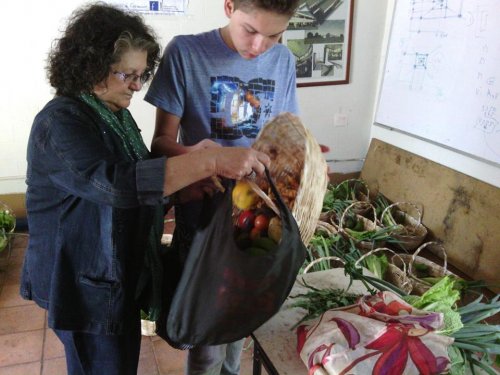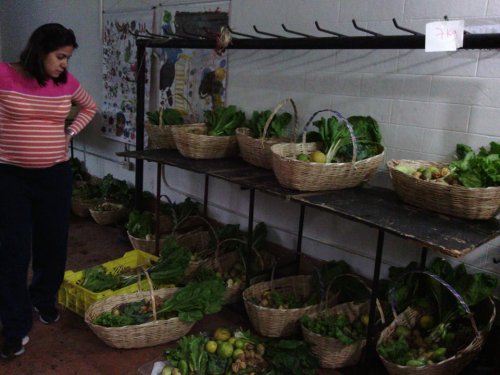English · Español

31 de marzo de 2016 | Noticias | Agroecología | Soberanía Alimentaria
An agroecological experience that is growing in Venezuela
In 2010, activists participating in different experiences linked to agroecology decided to create in Mérida, Venezuela, Mano a Mano a space for cooperation among agroecological food farmers and consumers. Based on the principles of solidarity, fair exchange and defense of the right to a wholesome environment and safe and sovereign food, the proposal gathers today over 50 consumer families and 27 families of agroecological farmers.
In times when the food and agricultural input capacity is declining in Venezuela, initiatives such as this one gain special relevance according to its members: the farmers themselves can produce their compost; agroecological farming requires lower credits than conventional agriculture; in response to the migration of rural workers to the city, agroecology generates collaborative work forms. "We believe that revolutionary processes can be underpinned with agroecological processes, because agroecology demands cooperation, solidarity; and it is antiimperialistic because it does not depend on (nor does it respond to) transnational corporations", said Nelson, member of the collective.
The recovery of the food culture and identity has been one of the achievements of this initiative: "Until a couple of years ago, people received food they didn´t know of, and so a learning process was stimulated; they would ask: "what is this? How do I eat it? What are its benefits?" so a natural capacity-building process was created. Now they even ask for the items they once didn´t know, and the demand for chachafruto, yacon, amaranth and cape gooseberry is growing", said Ravi, agroecological farmer.

Reconsidering production and consumption
Farmers define prices and what food to grow during assemblies. The meetings are also attended by consumers and the prices established are kept for a period of three months. The idea was to generate a space for consumers and farmers to meet, without intermediaries.
Another experience developed together with Mano a Mano is Convivium, a space made up of cooks aiming to recover the local cuisine with native items such as "different varieties of native potatoes, maya, cuiba, yacon".


Here we can highlight the articulation between academics and peasants: "There has been a relationship of solidarity among researchers, science, biology, agronomy students with peasant farmers, because they have managed to recover crops that were scarce".
As another way of linking the countryside with the city there is a possibility for the buyers of food to participate in their production. "Cayapas" are a traditional way of growing crops collectively in Venezuela. This is also seen by the members of Mano a Mano as a way to de-build the current farmer-consumer relationship, in a way to go beyond the monetary exchange mediated by supermarket chains.
Despite these counter-hegemonic features, it is recognized that it hasn´t been easy to have the State´s support to this initiative and to agroecology as a whole. However, "there are State institutions that have shown interest and are starting to make proposals: recently, the Federal Governmental Council opened a line of support for ecological agriculture and the production of seeds", said Nelson.
Imagen: https://consumirdeotromodo.wordpress.com








